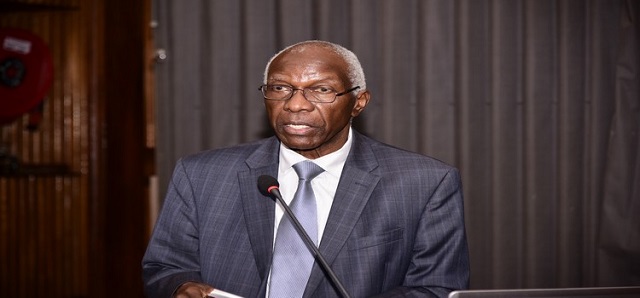
Kampala, Uganda | THE INDEPENDENT | The Finance Committee has pinned the Office of the Auditor General (OAG) over unaudited accounts of classified expenditures, amounting Shs6.8 trillion.
Lawmakers who were receiving the 2022/2023 budget of the OAG from the Auditor General, John Muwanga on Monday, also accused the audit body of neglecting other heavily funded entities including oil companies and the infrastructure sector.
Muwanga Kivumbi, Butambala County MP said that Parliament relies on the Auditor General to scrutinise the expenditure of Ministry of Defence since it is a classified budget.
“You have differed audits totaling Shs5 trillion and yet you are going to districts where there is no money,” said Muwanga Kivumbi.
He added that focus should be directed to oil companies, saying that government is spending colossal sums of money on Production Sharing Agreements.
“Oil companies have not been audited since 2011. These companies are heaping government with all manners of loans and yet we are not seeing value for money,” Muwanga Kivumbi said.
Committee Vice-Chairperson, Jane Pacuto said that continued failure to audit huge government expenditures leaves Ugandans hopeless.
“Under classified audits, you had planned to do 13 but you have carried out only 3. What hope do you give the country that you are capable of auditing? Is it that you do not have the capacity or resources? Tell us so that we can support you,” she said.
Moses Aleper of Chekwi County urged the OAG to shift from carrying out financial audits to auditing for value for money, arguing that this will ensure that MDAs spend wisely.
“This is in line with the new programme based budgeting whose objective is value for money,” said Aleper adding that, ‘emphasis should be put on implementation of recommendations so that you can ably report on the outcome of the audit’.
Committee chair, Kiwanuka Keefa questioned the criteria the audit body uses to select agencies to be audited.
“With the limited resources, how do you determine the agencies to be audited in a given financial year?” wondered Kiwanuka.
Herbert Tayebwa, Kashongi County MP tasked the Auditor General to justify why the OAG should not be disbanded saying that despite the body’s existence, corruption is on the rise.
“Office of the Auditor General should be able to track budget implementation and discover any mischarges but because they connive with Ministries, Departments and Agencies to conceal corruption, they cannot,” Tayebwa said.
Paul Omara, Otuke County MP however blamed the challenges in the OAG on insufficient budgets saying that majority of the differed audits are a result of budget shortfalls.
The Assistant Director Audit in charge energy, Bob Godwin Mande attributed the slow progress in auditing of oil companies to the legal frameworks which provide for back and forth negotiations.
“We have so far audited Production Sharing Agreements for 2015 and we have recoverable amount for Uganda of US$29 billion. We also have first management letters for the agreements audited for the years, 2016 and 2019. At the end of this year, we shall update the 2018 audit on the PSA and start with that of 2020,” he added.
The Assistant Auditor General, Steven Katerega informed the MPs said that all infrastructure projects under Uganda National Roads Authority (UNRA) and Kampala Capital City Authority (KCCA) are audited annually.
“These entities are audited on value for money and not financial audits because they are allocated huge budgets,” he said.
He however told the MPs that OAG requires an additional Shs16 billion next financial year to audit the energy and infrastructure sector.
“There is demand to critically focus on the energy and infrastructure sectors and yet the funds allocated might not enable us audit those sectors,” Katerega said.
In the 2022/2023 FY, the OAG has been allocated Shs67 billion and Katerega said that the body requires Shs161 billion leaving a shortfall of Shs93 billion.
 The Independent Uganda: You get the Truth we Pay the Price
The Independent Uganda: You get the Truth we Pay the Price





